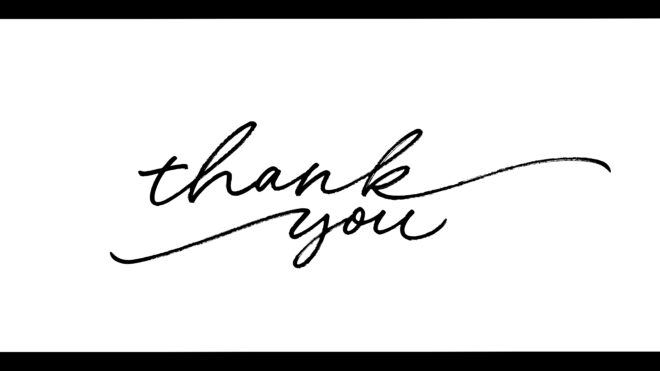It’s hard to beat the ROI of a simple, sincere Thank You, however you might express it.
While almost every employer in the developed world is grappling with a labor shortage, one of the underlying causes is, in fact, an appreciation shortage.
As with any other relationship, the moment one party begins to feel taken for granted by the other, the grass starts to brown, sparking a hunt for something greener – double entendre intended.
This explains, in part, the massive reshuffling of the workforce in recent months. The overwhelming majority of the 4.3 million U.S. workers who quit their jobs in May of 2022 didn’t go sit at home, unemployed. They left one job for a new one they hoped would be better. This was not a spike. More than four million workers in the United States have quit their jobs every month this year.
Many of these left for more money, which, in itself, is seen as a measure of appreciation. Workers see increased demand for products and services while working harder to take up the slack resulting from staff shortages, and naturally feel unappreciated if they don’t see a share of what they can only assume are greater profits. Meanwhile, those profits are, in fact, being eroded by inflation, brought on in part by employers increasing wages to try to keep the people they have. Oy. It’s no wonder Tylenol sales are up.
Those of us who study employee retention have long said, “It’s not just the money.” But let’s be honest. Today, it’s probably more about the money than it has been in a long time. If that’s the problem in your case, and you have the means, you already know what you have to do. And, by the way, your employees are convinced that you do have the means. If, in fact, you don’t, it might be time to get more transparent about how money is earned and spent in your organization.
Paying people less than they deserve is rarely a success strategy. But if you’re pretty well maxed out on monetary compensation, other ways of expressing appreciation can take you a long way.
Billions of dollars are spent each year in the U.S. alone on elaborate and seemingly creative reward and recognition “programs”. Some of this activity clearly accomplishes its intended purpose. But it may not be the best way to say “Thank you”. We may have overcomplicated this.
Nonscientific research alert: Since the start of the pandemic, I’ve polled the participants of many of the virtual keynote and training presentations I’ve made, asking the question, “How do you prefer to be thanked for a job well done?” Respondents had to make one and only one selection from a list of eight expressions of appreciation. With 2,432 responses, here are the results:
| 1 | Verbal thanks from a co-worker | 26.82% |
| 2 | Verbal thanks from my manager | 21.23% |
| 3 | Time off with pay | 18.44% |
| 4 | Handwritten thanks from a co-worker | 16.76% |
| 5 | Handwritten thanks from my manager | 8.94% |
| 6 | Monetary award or gift card | 6.15% |
| 7 | Being named Employee of the Month | 1.12% |
| 8 | Company newsletter/intranet mention | 0.56% |
That’s right. In this poll, people preferred a sincere “Thank you” from their boss or co-worker over time off with pay.
These results may or may not approximate what would happen in your organization, but they do provide some lessons, and some to-do’s, so here goes.
- First, scrap Employee of the Month. Or at the very least, don’t expect it to carry the load for employee appreciation. We can all do better than this.
- Napoleon Bonaparte is reported to have said (undoubtedly in French), “A man will fight long and hard for a bit of colored ribbon.” OK, he said it in the 18th century, so let’s overlook the “man” thing. But it’s true. There’s real value in recognition, in distinction. It doesn’t have to cost a lot of money.
- Commit yourself to establishing a culture of thanks. Simply saying the words, “Thank you,” “I really appreciate that,” “I really appreciate you”, along with some detail about what you appreciate and why, will do more than another logo branded water bottle or expensive crystal trinket picked out of a catalog. No, literally, just say the words, and mean them. It’ll do more than you think.
To do or give something more tangible, here are a whole bunch of ideas I’ve seen done in some of the organizations I’ve spoken for:
- Send handwritten thank you notes. Easy. Cheap. Huge value. People will save these forever and toss the corporate chotchkies during their next de-cluttering.
- Remember, one size fits one. Get to know the people you’re thanking, and do something special, just for them.
- They come in most days with something from Starbucks? Thank them with a Starbucks gift card.
- You know they’re a fan of your local sports team? Find a way to get them to a game.
- Suppose someone has an affinity for a particular nonprofit or arts organization. Make a donation to that organization in support of their work, in the name of your employee.
- Celebrate big deals. Failure to do so qualifies as taking for granted. Things like:
- Winning a new client/customer
- Successful completion of a big project
- Overcoming a major challenge
- Acknowledge what’s going on with gas prices at the moment. A $100 gas gift card should just about do one fill-up. For those who don’t buy gasoline, make it a general debit gift card of the same value.
- As good as time off can be, surprise time off can be even better. July 4 was on a Monday this year. A CEO I know announced to the company the previous Monday, “You’re done at noon on Friday. You all deserve a head start on the long weekend.” I can assure you productivity increased that week.
- Make time to have a meaningful career discussion with the employee.
- Include families in recognition and appreciation when appropriate:
- A woman had been working unusually long hours and traveling a lot. Her manager found out her family’s favorite dining spot and treated them to dinner there. Mom came out the hero in that one.
- A high performing employee suddenly started slipping. He confided to his boss that his child’s severe academic problems were taking a toll on him and his wife. The boss arranged and paid for intensive tutoring for the student. There was considerable improvement on the part of both child and dad.
- An employee’s daughter won the state spelling bee. The CEO sent a congratulatory letter to the young woman, along with an Amazon gift card.
- Take some pressure off a hardworking employee by arranging to get their house cleaned, or their car detailed.
- Hold a “Managers’ Car Wash”. Managers come in on a Friday, in cutoffs and T-shirts, and wash the employees’ cars. It’s a great teambuilding exercise for the managers, too.
- Bring in a food truck, and tell your employees to put their money away.
- Managers – serve lunch to the employees. Cook it, serve it, and then clean up afterward.
- Volunteer to do an employee’s most unpleasant task for one day.
If you ever wonder how you can show your genuine appreciation to the people you work with, surely something on this list will provide some inspiration. Just remember:
- While saying thanks is no substitute for monetary compensation, it is a valuable supplement.
- Personalized thanks almost always beats generic.
- Saying thanks doesn’t have to be expensive. In fact, it might cost nothing at all.
We can bring this message, and more, to your organization, to help you win the war for talent. Contact us to learn more or get started.
And one last thing: thank you for reading this.
book richard or bill to speak for your meeting


